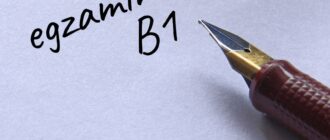The variety of forms of Polish verbs of movement can seem endless and unnecessarily over-complicated when you look at them for the first time.
It can really make your head spin when you hear that chodzić, jeździć, szedłem, wyszłam, jechliśmy, idę, pójdę, dojechałem, chodziły, jechać and many, many others can all be translated as the English verb “go”. The thing is, this translation is not entirely right. For some reason I very often see that my students think only about the infinitive form of “go” and tend to forget about other forms like “goes”, “is going”, “were going”, “will be going”, “went”, “gone” as well as many other verbs like “arrive”, “depart”, “go out” and others. From this perspective the variety of Polish forms doesn’t seem so unnecessarily over-complicated, does it?
Secondly you must remember that the Polish language is more precise in expressing specific kinds of movement: “iść” and “chodzić” mean “to go on foot”, whereas “jechać” and “jeździć” mean “to go by any kind of transport on wheels”.
The third and most important point is that you don’t have to memorise these forms separately, since they all use the same pattern.
Let’s take the pair of “iść” and “chodzić”.
“iść” is always used in continuous forms: present continuous, past continuous, future continuous.
Where two forms are mentioned (like “szedłem/szłam”) it means that they vary depending on the gender. The first form is always masculine, the second one – feminine. According to that, “ja szedłem” means “I was going” spoken by a man, and “ja szłam” means also “I was going”, but spoken by a woman.
If you remember the conjugation of this verb in the present and the past, you don’t actually have to memorise all the others. You only have to understand the pattern that is used:
| czas teraźniejszy (present continuous) | czas przeszły (past continuous) | |
| ja | idę | szedłem/szłam |
| ty | idziesz | szedłeś/szłaś |
| on | idzie | szedł |
| ona | idzie | szła |
| ono | idzie | szło |
| my | idziemy | szliśmy/szłyśmy |
| wy | idziecie | szliście/szłyście |
| oni | idą | szli |
| one | idą | szły |
The future continuous form is made from the verb “be” (“być”) in its future forms, according to the person and gender and the past form of the verb “iść” in the third person, according to the gender. Yes, it’s surprising that we use past forms for the future, but that’s exactly how it works!
| czas przyszły (future continuous) | |
| ja | będę szedł/będę szła |
| ty | będziesz szedł/będziesz szła |
| on | będzie szedł |
| ona | będzie szła |
| ono | będzie szło |
| my | będziemy szli/będziemy szły |
| wy | będziecie szli/będziecie szły |
| oni | będą szli |
| one | będą szły |
Now it’s time to think about perfective forms. Let me start with a remark on the fact that perfective forms can only exist in the future and in the past. If something is going on right now, it’s always inperfective. When finished – it ultimately becomes the past. Perfective forms in the future also reflect this feeling, that something will have been finished and something else will start happening.
Future perfective forms of the verb “iść” actually contain all its forms. We just add different prefixes to them. When looking at words like “pójdę”, “wyjdziesz”, “dojdą” you might be surprised by the letter “j” in the middle. What happened here was that the “i” changed into “j” since it’s easier to pronounce. Try to pronounce “póidę” and you will understand immediately, that you pronounce “j”, not “i”.
The next question is what meanings are provided by different prefixes. Let me repeat once again: you don’t have to memorise each verb separately since all those prefixes have the same meanings both in the past and in the future, as well as in usage with other verbs of movement. And all of them give a sense of completing a movement, but each time in a slightly different way:
- po-/pó- gives a meaning of going in some specific direction and is usually used with a preposition “do”:
Jutro pójdę do sklepu. I will go to the shop tomorrow.
- wy- shows the direction of moving out, and is usually followed by a preposition “z”:
Jutro wyjdę z pracy o piątej. Tomorrow I will leave work at 5. - do- is used when we talk about arriving or approaching:
Ja nie wiem kiedy dojdę do domu. I don’t know when I will arrive home. - od- gives a meaning of moving aside or moving away from a particular point:
Niech ona odejdzie od gorącego pieca! She must get away from that hot oven! - Prze- shows either a movement across something (to the other side of the street, to the opposite side of the river etc.) or a distance that has been or will be overcome:
Kiedy zapali się zielone światło, przejdę na drugą stronę ulicy. When the green light turns on, I will cross the street.
Jeśli wszystko pójdzie zgodnie z planem, jutro przejdę 20 km. If everything goes as planned I will walk 20 km tomorrow.
Now compare the forms of the present continuous and the future perfective:
| czas teraźniejszy (present continuous) | czas przyszły dokonany (future perfective forms) | |
| ja | idę | pójdę, wyjdę, dojdę, przejdę |
| ty | idziesz | pójdziesz, wyjdziesz, dojdziesz, przejdziesz |
| on | idzie | pójdzie, wyjdzie, dojdzie, przejdzie |
| ona | idzie | pójdzie, wyjdzie, dojdzie, przejdzie |
| ono | idzie | pójdzie, wyjdzie, dojdzie, przejdzie |
| my | idziemy | pójdziemy, wyjdziemy, dojdziemy, przejdziemy |
| wy | idziecie | pójdziecie, wyjdziecie, dojdziecie, przejdziecie |
| oni | idą | pójdą, wyjdą, dojdą, przejdą |
| one | idą | pójdą, wyjdą, dojdą, przejdą |
The same transition happens between the forms of the past continuous and the past perfective:
| czas przeszły (past continuous) | czas przeszły dokonany (past perfective forms) | |
| ja | szedłem/szłam | poszedłem/poszłam, wyszedłem/wyszłam, doszedłem/doszłam |
| ty | szedłeś/szłaś | poszedłeś/poszłaś, wyszedłeś/wyszłaś, doszedłeś/doszłaś |
| on | szedł | poszedł, wyszedł, doszedł |
| ona | szła | poszła, wyszła, doszła |
| ono | szło | poszło, wyszło, doszło |
| my | szliśmy/szłyśmy | poszliśmy/poszłyśmy, wyszliśmy/wyszłyśmy, doszliśmy/doszłyśmy |
| wy | szliście/szłyście | poszliście/poszłyście, wyszliście/wyszłyście, doszliście/doszłyście |
| oni | szli | poszli, wyszli, doszli |
| one | szły | poszły, wyszły, doszły |
Finally, let’s look at the verb “chodzić”.
In the present tense it can be translated as the English present simple since it means a permanent habit. Here are the forms to learn:
| czas teraźniejszy (present simple) | |
| ja | chodzę |
| ty | chodzisz |
| on | chodzi |
| ona | chodzi |
| ono | chodzi |
| my | chodzimy |
| wy | chodzicie |
| oni | chodzą |
| one | chodzą |
A very important point is that if we add to these forms prefixes that we have just discussed we will receive two different meanings depending on the context:
- Completing an action at a particular point of time:
Właśnie wychodzę z domu. I’m leaving home right now.
Dochodzę już do sklepu, za minutę tam będę! I’m approaching the shop, I’ll be there in a minute! - A habit of repetitive completion of an action:
Zawsze jestem skoncentrowana kiedy przechodzę przez ulicę. I’m always alert when I cross the road.
Kiedy wychodzę z domu zawsze sprawdzam, czy mam klucze. When I leave home I always check if I have the keys.
An interesting exception here is the prefix “po-”. When we say:
“Pochodzę trochę i zobaczę, czy coś się znajdzie”, we don’t mean either of the contexts mentioned above. This prefix alone gives a sense of a brief action in the future:
“I will move around a bit and see if anything will be found.”
Remember that the prefix “po-” always has the same sense with all the verbs (not only the ones meaning movement):
Posiedzę trochę, poczytam, pomyślę, może pośpię. I’ll sit for a while, read and think a bit, maybe I’ll get some sleep.
In the past tense (imperfective form) the verb “chodzić” changes into:
| czas teraźniejszy (present simple) | czas przeszły (“used to”) | |
| ja | chodzę | chodziłem/chodziłam |
| ty | chodzisz | chodziłeś/chodziłaś |
| on | chodzi | chodził |
| ona | chodzi | chodziła |
| ono | chodzi | chodziło |
| my | chodzimy | chodziliśmy/chodziłyśmy |
| wy | chodzicie | chodziliście/chodziłyście |
| oni | chodzą | chodzili |
| one | chodzą | chodziły |
We can translate it into English as the construction “used to”:
Kiedy byłem mały w niedziele chodziłem na obiad do babci. When I was small I used to go to my grandmother for lunch on Sundays.
For the future tense we use the same pattern as we used with “chodzić”; it is made from the verb “be” (“być”) in its future forms, according to the person and gender and the past form of the verb “chodzić” in the third person, according to the gender:
| czas przyszły (future imperfective form) | |
| ja | będę chodził/będę chodziła |
| ty | będziesz chodził/będziesz chodziła |
| on | będzie chodził |
| ona | będzie chodziła |
| ono | będzie chodziło |
| my | będziemy chodzili/będziemy chodziły |
| wy | będziecie chodzili/będziecie chodziły |
| oni | będą chodzili |
| one | będą chodziły |
All these forms signify a repetitive activity in the future:
Od przyszłego roku nasz syn będzie chodził do szkoły. Starting from next year our son will be going to school.
We can add prefixes to both the past and future imperfective forms.
| czas przeszły (imprefective, “used to”) | ||
| ja | chodziłem/chodziłam | wychodziłem/wychodziłam, przychodziłem/przychodziłam |
| ty | chodziłeś/chodziłaś | wychodziłeś/wychodziłaś, przychodziłeś/przychodziłaś |
| on | chodził | wychodził, przychodził |
| ona | chodziła | wychodziła, przychodziła |
| ono | chodziło | wychodziło, przychodziło |
| my | chodziliśmy/chodziłyśmy | wychodziliśmy/wychodziłyśmy, przychodziliśmy/przychodziłyśmy |
| wy | chodziliście/chodziłyście | wychodziliście/wychodziłyście, przychodziliście/przychodziłyście |
| oni | chodzili | wychodzili, przychodzili |
| one | chodziły | wychodziły, przychodziły |
Future imperfective:
| czas przyszły (future imperfective form) | ||
| ja | będę chodził/będę chodziła | będę wychodził/będę wychodziła, będę przychodził/będę przychodziła |
| ty | będziesz chodził/będziesz chodziła | będziesz wychodził/będziesz wychodziła, będziesz przychodził/będziesz przychodziła |
| on | będzie chodził | będzie wychodził, będzie przychodził |
| ona | będzie chodziła | będzie wychodziła, będzie przychodziła |
| ono | będzie chodziło | będzie wychodziło, będzie przychodziło |
| my | będziemy chodzili/będziemy chodziły | będziemy wychodzili/będziemy wychodziły, będziemy przychodzili/będziemy przychodziły |
| wy | będziecie chodzili/będziecie chodziły | będziecie wychodzili/będziecie wychodziły, będziecie przychodzili/będziecie przychodziły |
| oni | będą chodzili | będą wychodzili, będą przychodzili |
| one | będą chodziły | będą wychodziły, będą przychodziły |
In these cases they can have two different meanings depending on the context:
- Continuous completion of an action in the past or future (just once):
Kiedy wychodziłem dzisiaj z domu, światło było zgaszone. When I was leaving home today, the light was off.
Kiedy będziesz dzisiaj wychodził z domu, zgaś proszę światło. When you are leaving home today (only this once!) please turn off the light. - A habit of repetitive completion of an action in the past or future (many times):
Kiedy mieszkaliśmy w Warszawie, wychodziłem z domu o 6 rano. When we lived in Warsaw I used to leave home at 6 AM.
Kiedy przeprowadzimy się do Krakowa, będę wychodził z domu o 7 rano. When we move to Krakow I will be leaving home at 7 AM.
Now that you know all these rules and patterns, you will be happy to see that in all other pairs of verbs of movement they work in basically the same way:
Unfortunately, as always in Polish, there must be some exceptions. In the verb “jeździć” you see some changes in the root in the forms of the present simple tense and in all the imperfective forms with prefixes. There the core “jeżdż-” changes into “jeźdź-“.
Finally, the most irregular forms are observed in the verb “latać”. You still see the same pattern of similarity between the past imperfective forms and the future imperfective ones.



